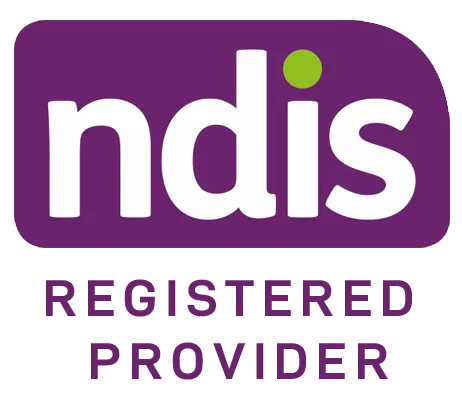

Our multi-disciplinary early intervention service is dedicated to providing comprehensive support for every child.
The Early Start Denver Model (ESDM) is an evidence-based early intervention approach specifically designed for young children with autism spectrum disorder (ASD) aged 12 to 48 months.
Developmental Educators are multi-disciplinary disability specialists with expertise in fostering the skills, independence, and quality of life of individuals with developmental and/or acquired disabilities.
A Speech Pathologist can help infants, toddlers and young children by providing specialised therapies and interventions to improve communication skills, such as using visual aids and augmentative communication devices.
Paediatric Occupational Therapy or OT focuses on helping children of all ages with physical, sensory, or cognitive challenges be as independent as possible in all areas of their lives.
Early Intervention Positive Behaviour Support (PBS) is a proactive and evidence-based approach which aims to promote desirable behaviours by reducing challenging behaviours in young children…
Help your child with ASD to connect, communicate and learn like never before!
The Early Start Denver Model (ESDM) is an evidence-based early intervention approach specifically designed for young children with autism spectrum disorder (ASD) aged 12 to 48 months. Developed by Dr. Sally Rogers and Dr. Geraldine Dawson, the ESDM is a holistic therapy that integrates developmental and relationship-based approaches to foster communication, social skills, and cognitive development in young children. ESDM is designed to be flexible and can be delivered in various settings. The ultimate aim is to improve the developmental trajectory of young children with autism, promoting their ability to communicate, learn, and engage socially.
ESDM targets a wide range of developmental domains, including language, social skills, imitation, motor skills, and adaptive behaviour.
The model emphasises naturalistic and play-based interactions to create engaging and enjoyable learning experiences. The goal is to build positive relationships between the child and their caregivers or therapists.
ESDM uses a developmental curriculum tailored to each child’s unique strengths and needs. Goals are set based on the child’s current developmental level and progress is continually monitored and adjusted.
Parents and caregivers are considered essential partners in the intervention. ESDM includes training and support for families to implement strategies in daily routines and activities.
ESDM focuses on teaching skills in the context of everyday activities, making learning relevant and meaningful for the child.
Research studies have shown that children receiving ESDM interventions demonstrate significant improvements in cognitive abilities, language skills, and adaptive behaviour compared to children receiving other types of interventions.
We assess children first using the ESDM Curriculum Checklist for Young Children with Autism. This is a comprehensive play based developmental checklist that is used for the purpose of assessing the child’s current skill level and formulating 2-3 objectives from each developmental domain for a termly 10-week intervention program, to target developmental gaps.
Development of individualised goals based on the assessment in collaboration with parents/caregivers.
Regular sessions with trained therapists, incorporating play-based activities and naturalistic teaching strategies.
Developmental Educators are multi-disciplinary disability specialists with expertise in fostering the skills, independence, and quality of life of individuals with developmental and/or acquired disabilities. As allied health professionals, Developmental Educators have a practical approach and work holistically across the life span to address issues which may affect the function, independence, and social inclusion of individuals with disability, their families, and carers.
Developmental Educators implement and develop methodologies that enable the application of effective strategies to support the individual developmental learning goals of people who experience challenges such as acquired brain injury, physical and neurological disabilities, autism spectrum disorders, intellectual disability, and other disabilities. Developmental Educators also work closely with families and caregivers, and other allied health professionals who may be involved in the support of an individual.
A Speech Pathologist can help infants, toddlers and young children by providing specialised therapies and interventions to improve communication skills, such as using visual aids and augmentative communication devices.
They can also work on improving social skills, such as initiating and maintaining conversations, and addressing any feeding or swallowing difficulties. Through individualised treatment plans, a Speech Pathologist can help children improve their overall communication abilities and quality of life.
Paediatric Occupational Therapy or OT focuses on helping children of all ages with physical, sensory, or cognitive challenges be as independent as possible in all areas of their lives.
As mentioned previously the word ‘occupation’ can be a little misleading, and perhaps even align with something that is just for adults. After all, children do not have occupations. But a child’s main ‘job’ is playing and learning. Occupational therapists can evaluate your child’s skills in a variety of areas that include play, school performance, and other daily activities.
Through a variety of play-based activities, an occupational therapist can assess and provide therapy for the component areas in the performance of daily activities:
Early Intervention Positive Behaviour Support (PBS) is a proactive and evidence-based approach which aims to promote desirable behaviours by reducing challenging behaviours in young children through consultation with the person their carers, families, and other support systems.
In early intervention PBS, strategies typically involve functional behaviour assessments (FBAs) to understand the underlying causes of challenging behaviours, followed by the development of behaviour support plans (BSPs) that outline proactive strategies, teaching alternatives, and reinforcement strategies to promote desired behaviours. The goal is to create supportive environments that foster positive behaviour change, enhance social skills, and improve overall quality of life for individuals and their families.
Our Positive Behaviour Support service aims to reduce challenging behaviours by:
Help your child with ASD to connect, communicate and learn like never before!
Focused on daily routines and play, the Early Start Denver Model (ESDM) integrates both behavioural and developmental principles to empower children with ASD to become active participants in the world around them.
Research has found that ESDM can significantly improve cognitive and social and communication skills in children with ASD, as well as reducing maladaptive behaviours.